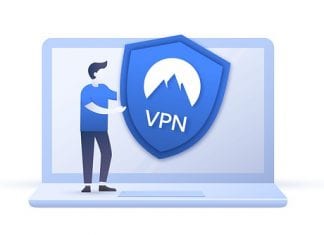
Regularly resetting your passwords should already be a practice. It is vital if you do not want your online accounts compromised. So in this article will provide you with the most essential tips for managing passwords and creating stronger ones to secure your accounts.
Why Is Regularly Resetting Your Password Important?
To avoid cyber security threats from getting into your online accounts, a good practice is to reset your password. And since many people do this often, experts have tagged this as a waste of time.
This recent ExpressVPN’s password survey explored how often individuals forget their passwords and how much time they actually waste resetting them – time that could instead be spent boosting physical and mental well-being.
According to the survey outcomes, Americans take the longest resetting their passwords, with 37 percent saying it takes them more than four minutes to change each password and seven percent taking more than 10 minutes.
With regards to the frequency, ExpressVPN found that 52 percent of the Americans they surveyed reset their passwords at least once per month.
Of the respondents from the United States, 21 percent say they reset their passwords more than once every week, with 14 percent saying they reset their passwords at least once daily. The latter tallies up to a whopping 26 hours spent every year for each person.
And worse, four percent of the U.S. respondents admit to having reset the passwords they have forgotten over four times a day, adding up to a staggering 103 hours per year.
But regularly resetting passwords is a must. Why? Well, this is because if you lose or change devices, it is highly possible for somebody else to gain access to your passwords. Regularly updating your passwords will prevent this from happening.
Take Heed Of These Tips For A Successful Password Reset
Resetting passwords, otherwise known as password management, is not new. So, users must step up and take responsibility for their passwords. Here are some tips for a successful password reset.
1. Use Password Managers
Instead of literally writing your passwords on paper that somebody else can find, you can instead utilize a password manager to store these passwords securely online. These password managers can remember and automatically enter your passwords on various websites, which means you will no longer have to remember the longer passwords you create.
2. Use Better And More Efficient Password Techniques
You can apply some simple tricks that will help you create stronger passwords. For example, this pilot uses a password containing eight characters that always have the same last five characters. This pilot changes the first three characters to an airport code – for instance, SFO for San Francisco, BOS for Boston, etc. – and simply pictures the city representing that airport code when the pilot needs to recall the password. Effective, right?
These mnemonic tricks can be helpful. You can also consider creating “password phrases” instead of regular passwords. For instance, you can create 0range c0w 3lender, wherein “o” is replaced by the number zero in numeral and “b” by the number three in the numeral format.
You may also think of a certain phrase, for instance, “We love Boston in the spring 2017,” then pick out the first letter of each word to form the password “Wlbits2017.”
Moreover, it would be best if you also created a password with the right keyboard flow whereby you type the characters in a very comfortable pattern on your keyboard. Receiving a “wrong password entered” notification that locks you out of your account is the last thing you want to happen.
3. Maintain Good Security Practices
Security and password management work hand in hand. Avoid saving passwords in a web browser since your old password might end up locking your account if you change it. It also holds true with the password of your email account, as your email account keeps the passwords to your other accounts most of the time.
Also, make sure you are aware of where you logged in and on which device, and change your password regularly. If you need to keep a list, do so.
4. Be Proactive
Some systems do not notify their users in advance when their passwords will change soon. This applies to systems or accounts that expire passwords. The account owners only find their passwords expired when they try to log in, which leads to them being locked out of their accounts.
To resolve this, users must set reminders for themselves that they need to change their passwords before they expire. Also, keep track of the moment your password expires, even if you do not get an advanced notification.
5. For Businesses: Review Your Account Policies
This tip particularly applies to businesses. Your account policies may need tweaking to reduce account lockouts or password reset incidences. Determine whether your password requirements are too stringent and whether your password changes for your users are being forced too often. Also, document how much time you or your group spend performing password and account reset.
And as always, you should often check with your security team before making any changes to your backend.
Tips For Creating Stronger Passwords
A strong password is easy for you to remember and difficult for other people to guess. How to create stronger passwords? Here are some tips.
- Never use personal details like your name, birthday, username, or email address. This information is often available publicly, making it easier for somebody else to guess passwords containing them.
- Create a longer password. Yes, it depends on the rules of the website where your account is, but typically, your password should be six characters long at the minimum. For added security, this could even be longer.
- Include numbers, symbols, uppercase letters, and lowercase letters. This will add strength and security to your password.
- Avoid using words found in the dictionary. For example, the password “swimming1” is easy to guess. It is a weak password.
- Random passwords are the strongest. If you do not want to create them on your own, you can use password generators that generate these random passwords.
Conclusion
Resetting your passwords is easier said than done. It is understandable that many people find resetting their passwords a waste of time, especially when they need to do this repeatedly. Yet, constantly resetting passwords is a good practice if you want to protect your accounts – online banking, social media accounts, and more – from cyber security threats.
Thus, we prepared this article for you to serve as your guide for creating and managing your passwords. Hopefully, these tips will prove helpful to you. It’s the New Year 2023, so make it your resolution to keep your online accounts secure.








